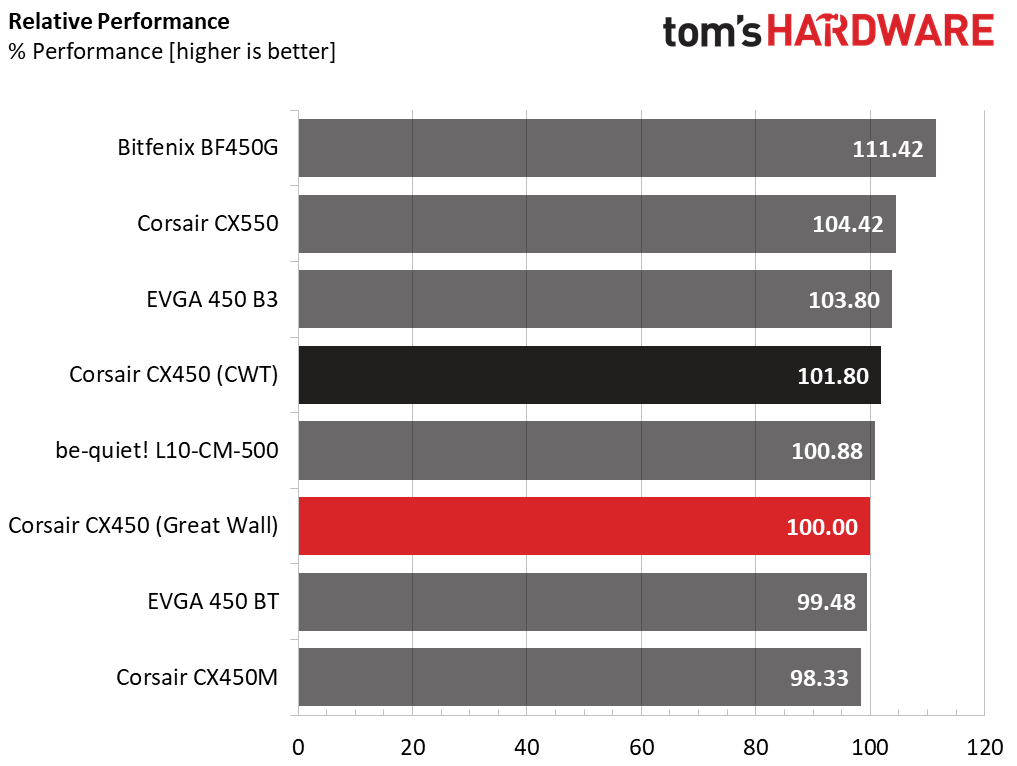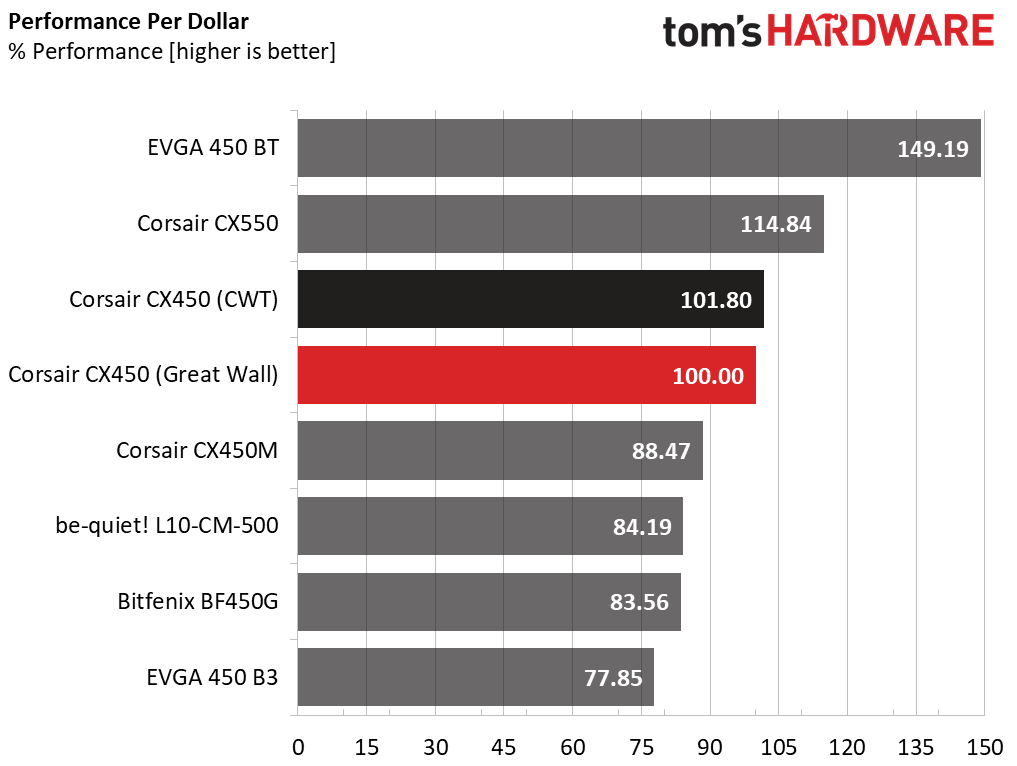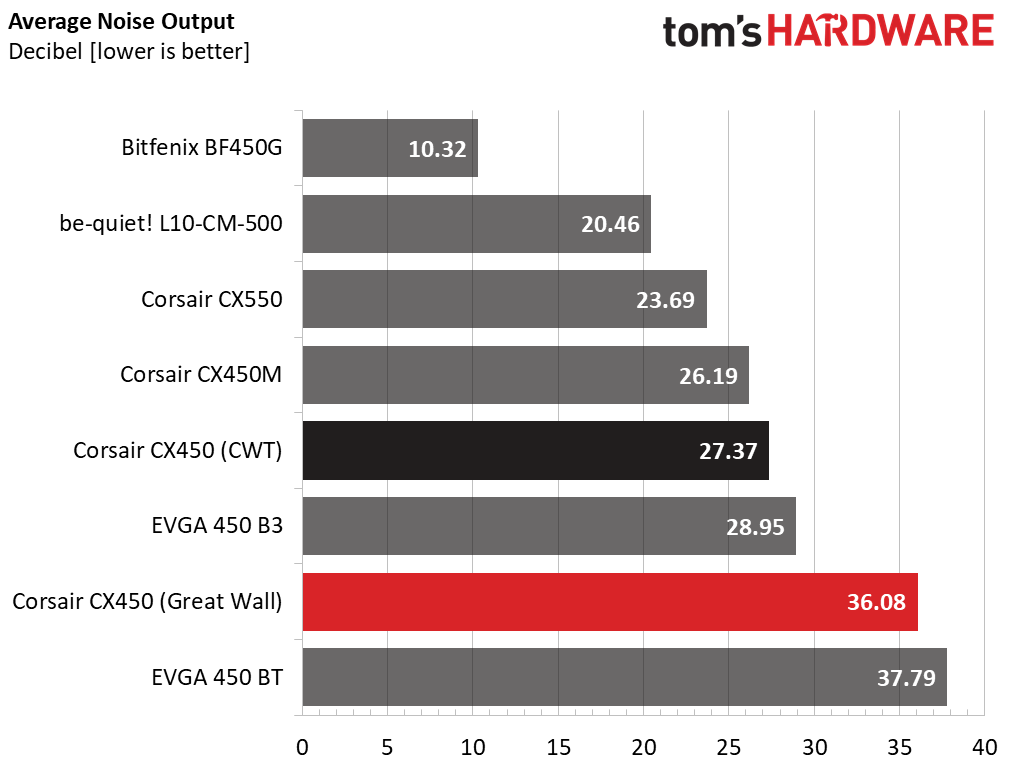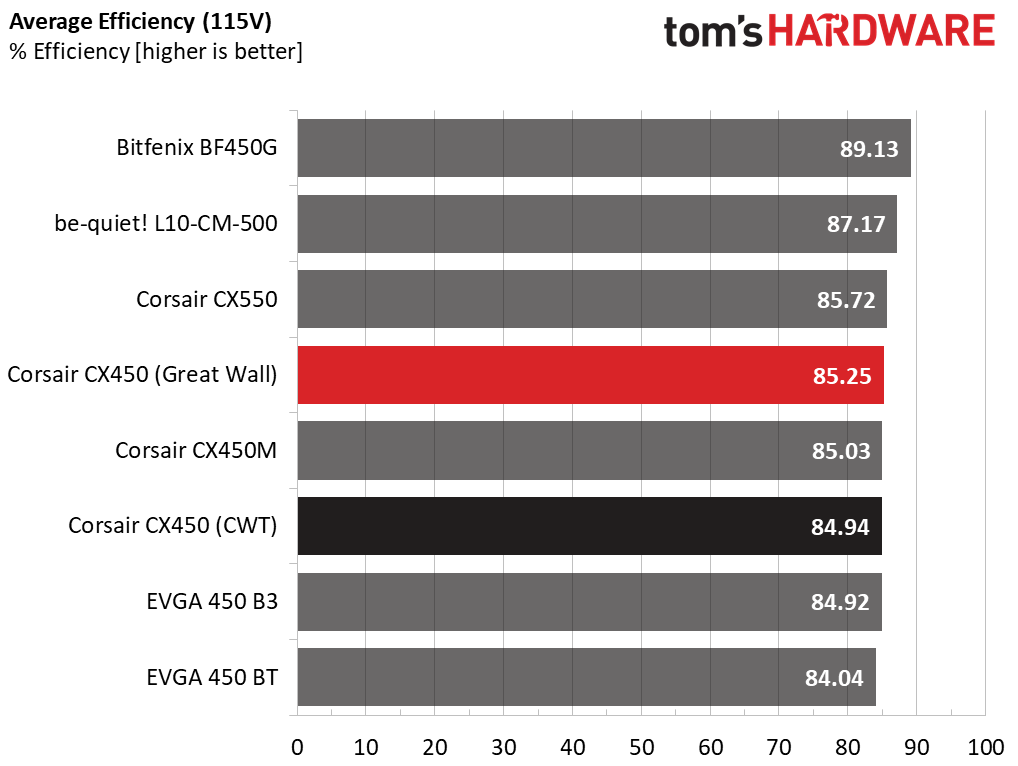Corsair CX450 PSU Review: Two Flavors, Tested and Compared
Why you can trust Tom's Hardware
Performance, Value, Noise & Efficiency
Performance Rating
The following graph shows the CX450’s total performance rating, comparing it to other units we have tested. The tested unit is shown as 100 percent, and every other unit's performance is shown relative to it.
CWT's CX450 offered longer hold-up time, better overall ripple suppression and lower voltage drops under transient loads, taking the lead from Great Wall's version. However, the Great Wall CX450 demonstrated better load regulation and higher efficiency.
Performance per Dollar
The following chart depicts the product’s performance-per-dollar score (both versions are the same price). We looked up the current price of each PSU on popular online shops and used those prices and all relative performance numbers to calculate the index. Note that all of the numbers in the following graph are normalized by the rated power of each PSU.
Noise Rating
The graph below depicts the cooling fan's average noise over the PSU's operating range, with an ambient temperature between 30°C (86°F) and 32°C (89.6°F). CWT's platform scored a clear win over Great Wall's platform in this discipline.
Efficiency Rating
The following graph shows the PSU's average efficiency throughout its operating range, with an ambient temperature close to 30°C (86°F). The difference in overall efficiency between both OEMs wasn't very noticeable.
MORE: Best Power Supplies
MORE: How We Test Power Supplies
Get Tom's Hardware's best news and in-depth reviews, straight to your inbox.
MORE: All Power Supply Content
Current page: Performance, Value, Noise & Efficiency
Prev Page EMI Pre-Compliance Testing Next Page Final Analysis
Aris Mpitziopoulos is a contributing editor at Tom's Hardware, covering PSUs.
-
jpe1701 Oh thank you Aris, I've been waiting for a review of this. It's always low in price and tempting to recommend but there weren't any reviews.Reply -
Darkbreeze Why do both of the review summary boxes list the Great Wall version? Both the one on the front page and the last page are the same. Seems like you ought to include a summary box for both versions since there seems to be some major differences between them. And even more so since you seem to indicate the CWT version is the better unit, but only include a summary box for the Great Wall unit.Reply -
Darkbreeze I totally understand. No worries mate. Editorial has a bad habit of effectively pooping all over the independent contributors writing as well. Not surprising that they are doing so with your work, but I sure wish somebody in editorial would make a few changes to policy that keeps the finished product a bit more in line with what the contributor intended, which often they don't. In this case, it totally makes zero sense that they didn't leave it as you had it.Reply -
Rexper ReplyWe preferred CWT's version of Corsair's CX450, but that doesn't mean you should avoid Great Wall's
Not that we have a choice.
Great article, once again, Aris!
There is some controversy appearing relating to the fan bearings used in the CX450. JonnyGURU, who works at Corsair, claims both CX450 versions use a rifle bearing.
Unfortunately, we can't know for certain until someone dismantles the fan.
http://www.jonnyguru.com/forums/showthread.php?t=15943&page=2 -
Darkbreeze I don't think it even makes a tremendous amount of difference. Fan failure on power supplies due to bearing fatigue is the least of the issues I've usually seen in the past on older units. Plus, it's not terribly difficult to replace a PSU fan if you have at least of a modicum of common sense and don't possess four thumbs.Reply
If fan noise is the biggest worry, or bearing failure over the long term, then I'd say these are winners for the price point. Most would never hear them over the sound of the rest of the system in any case.



